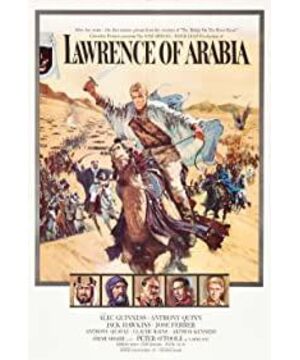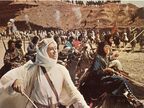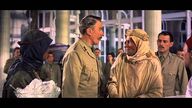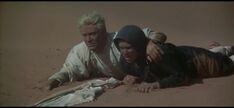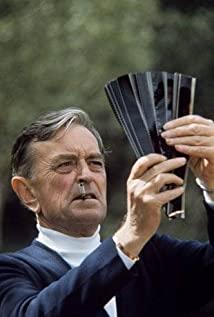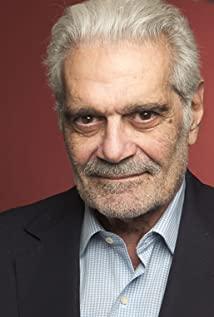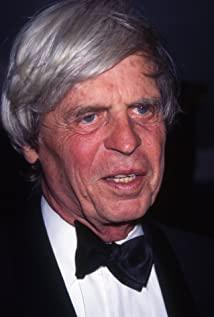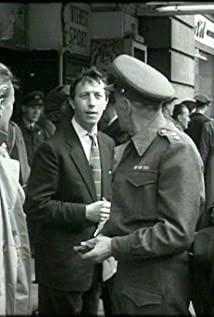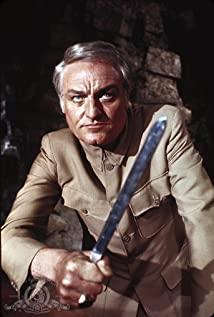There is no “imperialism” more tragic than the British who fought in the deserts of the Middle East during the First World War. They fought hard in the blue and yellow sands for years, and captured Basra, Baghdad, Sinai Peninsula, Jerusalem, Palestine, Lebanon, and Damascus. But after the military victory, it was a complete political retreat: Syria became an independent country and became the "mandate place" of France, as did Lebanon; Egypt declared independence later; Palestine was taken over by pan-Arab nationalists , Zionism who supported the British were expelled; the only good news is the results of Iraq's independence, but at the cost of constitutional government was replaced by Islam "theocratic" British envisaged Western;
"on the Middle East itself In other words, adopting a pro-Arab approach is tantamount to cocoon. In fact, there is no Arab country in the Middle East that can interact or support friendly with it. There is only a group of rivals or quasi-enemies that are almost incompatible." (" The new Cambridge Modern History of the World • Volume 12), this is the accurate evaluation of that period of history by later British historians. In their view, Britain at that time was dazzled by its naive idealism and wanted to complete the grand alliance of various Arab tribes, but in exchange for a chicken feather.
The movie "Lawrence of Arabia" tells this unbearable "history of conquest". The illegitimate son of a nobleman from Oxford, Major Lawrence, was ordered to contact Prince Faisal (later the head of state of Iraq) who was guerrillating in the desert, and assembled his armies to assist the British in attacking the Ottoman Empire. In the process, Lawrence and the Arabs were in perfect harmony. Regardless of clothing, way of thinking, or political stance, they have been "Arabized". This Anglo-Arab mixed armed force has achieved a series of military victories and finally entered the ancient capital of Arab- --Damascus. But the situation after that was tragic: the nomadic tribes accustomed to religious life could not fit in with Lawrence's ideals of modern parliamentary system. In the endless quarrels, the city fell into chaos, the tribe returned to the desert, and Lawrence also left sadly. .
This seems to be a tragic story of the defeat of personal heroism, but it is clear that David Nien's intentions are more than that. This well-known director who has directed "The Bridge on the River Kwai" has always been known for his ability to express conflicts between different cultures under the background of a special era, and this film is no exception. "Lawrence of Arabia" shows more than a personal tragic struggle. Through the protagonist's fate, we see the cultural knot that has plagued this land for thousands of years: the land of Islam and the modernity characterized by Westernization. The impact of the conflict has not yet been eliminated.
The Western world’s impact on Islamic countries began at the end of the 18th century. Like the Chinese Empire that was forced to open its doors later, the Middle Eastern countries at that time also deeply felt the impact brought by the Western "boats and guns." They also adopted The response method is similar to that of the Chinese Empire: buying Western-style weapons and imitating the Western military system. The Ottoman Empire and Iran successively promulgated a constitution and established a parliament. What Westerners did not expect was that this was a castle built on a sand dune, and it quickly collapsed under the strong winds of religious life.
The separation of Christianity and state power is undoubtedly the luck of Western culture. However, in the land of Islam, this has not been realized from beginning to end. From the time of Muhammad, the teachings have been spread by swords, and the state and religion have been combined into a close whole. It is inevitable that it can only allow an authoritarian state system, that is, the monopoly of power given by the "caliph" that does not allow any dissent, governs the secular and spiritual realms, and combines politics and religion. Religious life is all the life of a country. Westerners soon discovered that in these countries, elections and representative systems cannot play a representative role at all, and therefore they cannot produce a constitutional government that is accountable to the parliament. For example, the religious communities in Iran have clearly declared: "To reject or overturn all or part of the legislative proposal that contradicts the Islamic sacred rules, so that it cannot become law."
This is an invisible but indestructible wall that lies in front of Major Lawrence and the British, as well as in front of the later Americans. People have to understand this religion, this land, and its people from the doctrine itself:
As a religious belief, Islam has its concise doctrines and detailed religious obligations: prayer, fasting, alms, hajj, and holy war. The highest merit is to die for the faith (this is very different from other religions such as Christianity and Buddhism. ). The object it worships is purely abstract and does not allow Allah "Allah" to have any idols or appearances. Hegel once made a sharp comment on this: ------Be free from all restrictions, without any restrictions, and absolutely ignore the surrounding things. This is the unique enthusiasm of Islam. The enthusiasm for abstract ideas makes "religion and terror the principles of the Arabs, just as freedom and terror are the principles of Robespierre".
As a political concept, the status of "state" in Islam is ambiguous. There is no country as a combination of citizens in the modern sense. There are only different sects and their followers. As far as the “caliphate” is concerned, it meant absolute despotism from the beginning. Later, those who opposed the caliphate also established an authoritarian regime that was neither right nor down through a series of illogical methods. . In the entire Islamic world, autocracy seems to be a matter of course. Many Islamic countries are so similar. The only difference is that the political situation of this country is more stable, while the monarchy of that country is more powerful. In the Islamic world, no prohibition is as powerful as in the West, and dictators ignore any moral taboos. It is easy for every Muslim to follow orthodox religious ideas or follow a dominant faction. External forces may seize their land, but without the support of the Quran, they cannot force Muslims to obey themselves. Lawrence and the ideals of the British, the alliance of Arab countries in the modern sense, are destined to be nothing but a spectacle.
In places where Islam dominates, people are not protected from authoritarianism and its police. All power-related institutions have little shame, equality between people, and the reality that nobles and priests do not exist. , Making this situation impossible to alleviate a little. Under such circumstances, Islam often shows extreme arrogance towards non-Islamic residents and foreigners. It is unable to understand the outside world, nor can it be understood by the outside world. Therefore, all reforms cannot be promoted.
Lawrence's tragedy is still relevant today. Where he and the Faisal tribe fought together, time seems to have frozen, and everything is still the past. Disputes between religions and sects are still unsolvable diseases and dominate the course of history. The doubts that David Nien failed to answer in the film have been asked all the time.
View more about Lawrence of Arabia reviews


